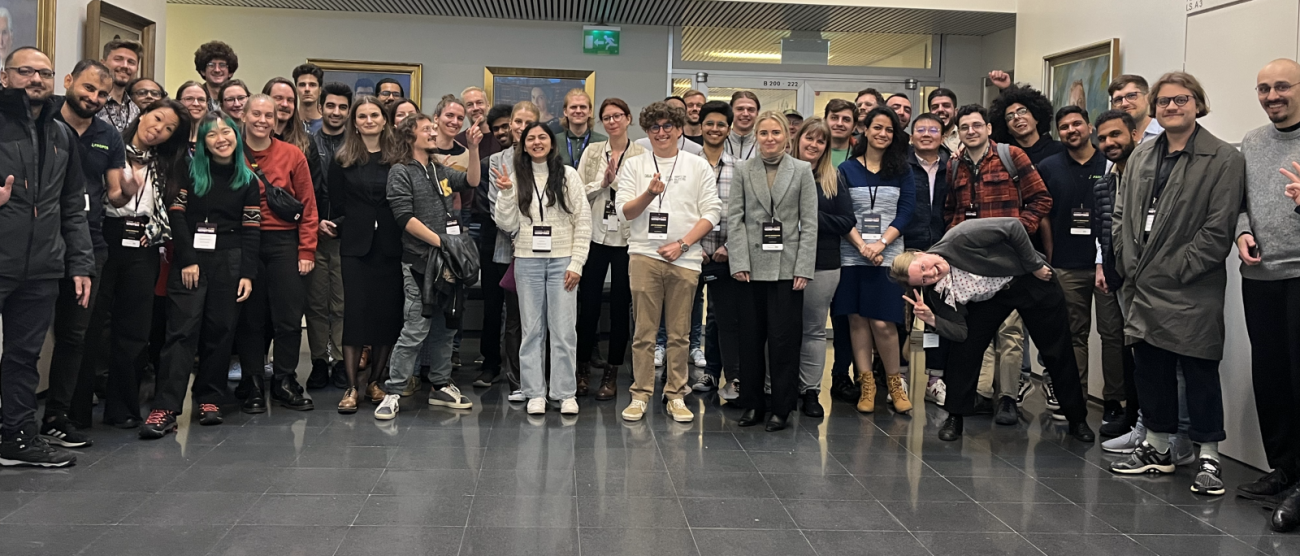Breaking Boundaries in Approximate Computing: APROPOS Project's Pioneering Energy-Efficient Computing Solutions for a Sustainable Tech Future
In the concluding year of our project, APROPOS, funded by the European Union through Horizon 2020 Marie Sklodowska Curie Innovative Training Networks, we are celebrating significant strides in our mission. Spearheaded by Tampere University, our initiative has empowered young researchers to pioneer innovative solutions in approximate computing, with a focus on enhancing power and energy optimization on a step towards the final project year!

Photo: APROPOS Early Stage Researchers attending Mindtrek Doctoral Consortium (Tampere, October 2023) with other PhD candidates
The project, officially titled "Approximate Computing for Power and Energy Optimization (APROPOS)", has seen the coordination of Tampere University in training 15 Early-Stage Researchers across Europe. These emerging talents have been equipped to address the challenges associated with future embedded and high-performance computing, specifically targeting energy efficiency through disruptive methodologies.
As we approach the culmination of this endeavor, our success is underscored by the broader context of global technological challenges. The looming projection that computers will surpass the world's capacity to generate electricity by 2040, coupled with the energy consumption equivalence between mobile broadband networks and data centers, emphasizes the urgency of our mission. The impending connectivity of up to 50 billion devices in the Internet of Things (IoT) paradigm further underscores the critical need for energy reduction in both distributed computing and communications for cloud-based cyber-physical systems. Professor Jari Nurmi, the Coordinator of APROPOS, highlights the project's key insight: the possibility of reducing data accuracy in various global systems. By doing so, we can achieve substantial gains in energy and time efficiency. Professor Nurmi emphasizes that many data acquisition, transfer, computation, and storage systems can operate with reduced accuracy, yielding energy savings of up to 50-fold.
Notably, the APROPOS project addresses the evolving landscape by focusing on the trade-offs between energy and accuracy at various levels, including circuits, architecture, software, and system solutions. This comprehensive approach ensures that our researchers are well-versed in both academic and entrepreneurial aspects, preparing them to harness the commercial potential of their findings. Our 15 research fellows, hailing from diverse corners of the globe, have converged in countries such as Finland, Sweden, Netherlands, Austria, Italy, Spain, Switzerland, France, and the UK to contribute to the project's success.
Despite facing challenges posed by the lingering impact of the COVID-19 pandemic, the APROPOS project is making significant strides. The cancellation of in-person events affected the project's pace, but the team has adapted and maintained momentum. From an academic standpoint, Early-Stage Researchers (ESRs) have published a total of 28 papers (available in Zenodo), showcasing a strong commitment to research excellence. Additionally, 22 papers are submitted/accepted, and 18 are in the final stages, emphasizing the project's robust potential for exceeding publication targets. The project's impact extends beyond academia, with 4 open-access data materials available for public use. A patent has been filed, marking a notable achievement in cross sectoral work. In terms of outreach, project representatives have organized 12 events, fostering collaboration and knowledge dissemination.
As we reflect on the accomplishments of the APROPOS project in its final year, it is evident that our efforts are not only addressing the pressing challenges of today but also preparing a cadre of skilled researchers to shape the future of information and communications technology. Read more about APROPOS at Project Blog





